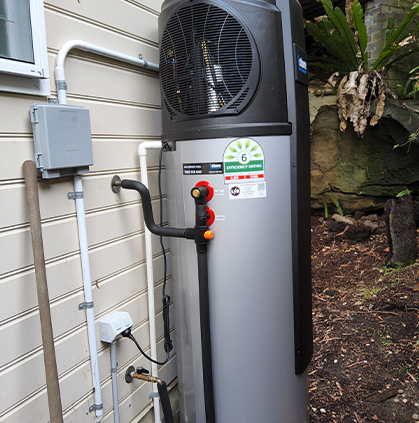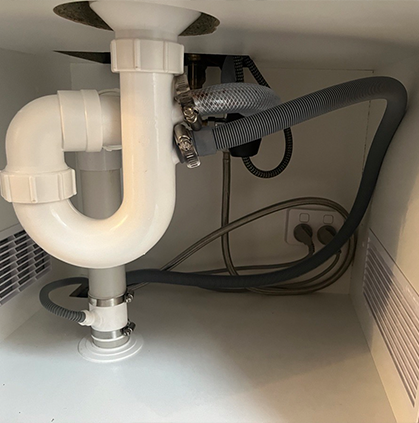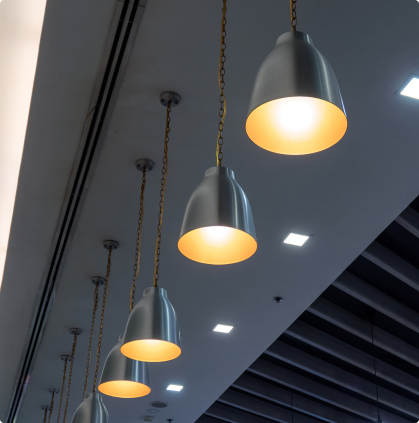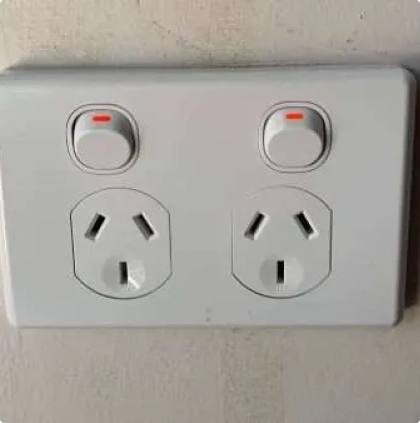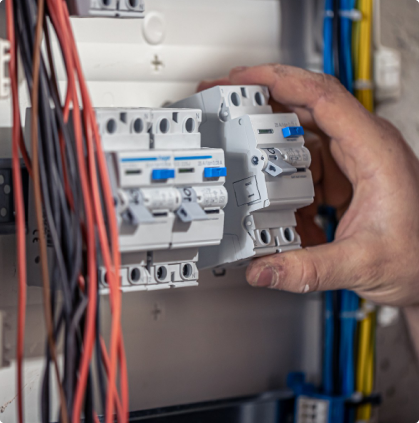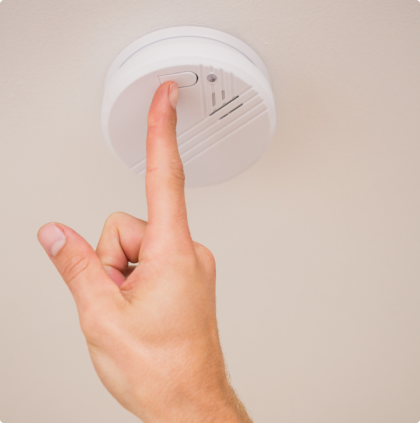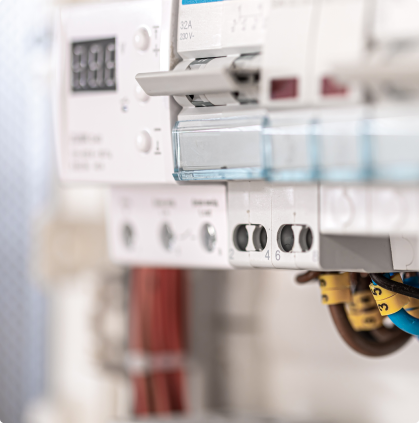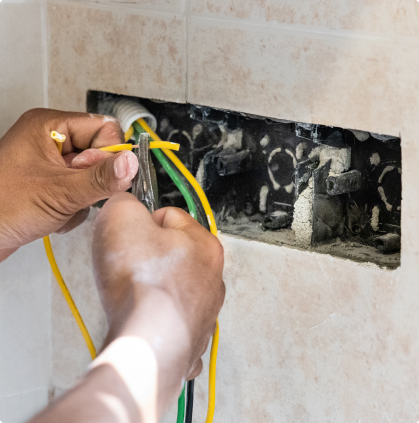
Ceiling fans are a staple in many Australian homes, offering a cost-effective and energy-efficient alternative to air conditioning. Whether you’re outfitting a bedroom, living area, or outdoor space, choosing the best ceiling fan can enhance comfort, reduce energy use, and even complement your home’s beauty. This quick guide to choosing the perfect ceiling fan will help you navigate the options available—especially when comparing AC vs DC fans.
Understanding the Basics of Ceiling Fans
A ceiling fan is more than just a decorative fixture. It plays a critical role in air circulation and can significantly lower your running costs. Unlike air conditioners that use refrigeration to cool the air, ceiling fans work by moving air around the room to create a cooling effect on the skin.
Modern ceiling fans are available with different types of motors—AC (alternating current) and DC (direct current). Understanding the differences between an AC fan and a DC fan is crucial in choosing the suited ceiling fan for your space.
AC vs DC Ceiling Fans: How to Know the Differences?
AC Ceiling Fans
AC fans are powered by alternating current from your home’s standard electrical system. These fans are typically more affordable and compatible with traditional wall switch controls. They’re a great option for those looking for simplicity and reliability. However, AC fans often use more energy and can be louder due to older motor designs.
DC Ceiling Fans
DC fans use direct current, making them more energy-efficient and quieter in operation. Fans with a DC motor consume less than 100 watts, making them ideal for homeowners concerned about energy efficiency and heating costs. Fans using a DC motor also offer a broader range of fan speed settings, remote control functionality, and reverse mode for circulating warm air during winter.
Although DC fans require an internal rectifier to be compatible with normal AC electrical systems, they are often the better choice for energy-conscious homes. DC motor fans deliver quiet operation, advanced fan performance, and less energy consumption, making them the ideal choice for year-round comfort.
Key Factors to Choose for Energy-efficient
1. Ceiling Height and Room Size
The type of ceiling and the size of your room directly impact your ceiling fan selection. For higher ceiling, you may need a fan with a downrod to bring it closer to the living area for better air movement. Larger fans with longer blades are better suited for bigger rooms, while smaller spaces like a bedroom may benefit from compact models.
2. Fan Blades and Airflow
The number, size, and shape of the blades influence how much airflow a fan can generate. While more blades can create a stylish look, fewer blades often provide better air movement. Look for fans are designed to balance both performance and appearance. The quality of the ceiling fan should reflect your space while still offering functionality.
3. Light Kits and Integrated Lighting
Many ceiling fans have lights, making them dual-purpose. You can choose a fan with lights or a fan without a light. If you want to add a light later, be aware that you can’t add a light later to some models. If lighting is important, ensure your chosen fan comes with a compatible light kit or light fitting.
4. Indoor and Outdoor Use
Not all ceiling fans are created equal. If you’re installing a fan in an outdoor area, like a patio or deck, ensure it’s rated for indoor and outdoor use. Fans are available in weather-resistant designs that can withstand moisture and humidity, providing comfort and style to your alfresco spaces.
5. Control Options
Remote control, wall switch, or even smart home integration—fans offer multiple ways to manage fan speed and lighting. Fans feature adjustable speed settings, and DC models usually offer smoother transitions between speeds.
6. Style and Aesthetics
From minimalist modern to traditional wood finishes, modern ceiling fans come in many styles. Consider the aesthetics of your existing decor and choose a fan that complements it while delivering efficient performance.
Benefits of Choosing a DC Fan
When comparing dc and ac fans, dc fans offer more than just lower running costs and energy efficient:
-
Fans deliver stronger airflow using less energy
-
Smoother fan speed control and quiet operation
-
Ideal for areas where noise is a concern, like a bedroom
-
Often includes reverse mode for warm air circulation in winter
-
Integrated light kits and remote controls for convenience
-
Compatible with normal ac electrical connections through a built-in rectifier
Fans using a dc motor are generally a better long-term investment. While the upfront cost may be higher than an ac fan, the energy efficiency and additional features make it worth the switch.
Choosing the Right Ceiling Fan for Your Space
Finding the correct ceiling fan comes down to more than price or style. You’ll need to consider:
-
Ceiling height and room dimensions
-
Whether you need a fan with a dc motor or prefer a simple ac motor
-
Whether you need a fan with an integrated light or without a light
-
Installation area: indoor and outdoor or just indoor?
-
Type of control—remote, wall switch, or smart
It’s essential to evaluate your home’s energy efficiency and lighting requirements before choosing a ceiling fan. This guide to choosing will help you find the perfect match for your needs.
Always Call a Licensed Electrician

No matter which model you choose, always use a licensed electrician for installation. Proper installation ensures safety, especially when dealing with ceiling mounts and wiring in high or damp locations. Installing a ceiling fan involves electrical work that should be handled by professionals.
Lightning Bult’s Expert Ceiling Fan Services
At Lightning Bult, we provide ceiling fan installation services tailored to your needs. Whether you’re upgrading an existing fan, looking to reduce heating costs, or exploring the latest energy-efficient options, our team is here to help.
We work with both AC and DC fans, ensuring compatibility with your home’s electrical systems and layout. Our licensed electricians can recommend the perfect ceiling fan based on your space, preferences, and budget.
Call us Now
Choosing the right ceiling fan doesn’t have to be overwhelming. With the right guidance, you can enhance your space’s comfort, reduce your running costs, and even improve circulation year-round. Remember: whether it’s an dc or one of the latest ac ceiling fans, there’s no “right or wrong”—just the right choice for your home.
Let the quality of your ceiling fan reflect the quality of your space. Contact us today to get started.
We Serve all around Sydney:





